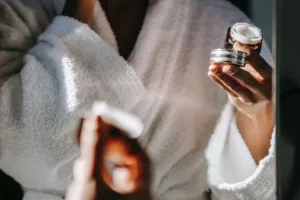Debunking Common Misconceptions

In the world of beauty and skincare, myths and misconceptions often circulate, leading to confusion and potentially harmful practices. With the increasing popularity of natural beauty products and holistic skincare routines, it’s crucial to debunk some of these common myths and provide you with the facts you need to make informed decisions for your beauty regimen. Let’s explore three natural beauty myths and replace them with well-grounded facts, helping you achieve healthier and more radiant skin naturally.
Myth 1: Natural Products Are Always Safe for Your Skin
Fact: The belief that natural products are universally safe is a common misconception. While many natural ingredients are indeed gentle and suitable for most skin types, there are exceptions, and natural does not always equal safe for everyone.
Fact: While natural products often contain fewer synthetic chemicals and harsh irritants, they can still cause adverse reactions in some individuals. Natural ingredients like essential oils, botanical extracts, or common allergens (e.g., nuts) can trigger allergies or skin sensitivities.
Fact: Always patch-test new natural products, especially if you have sensitive skin or a history of allergies. This involves applying a small amount of the product to a small area of your skin and waiting for 24-48 hours to see if any adverse reactions occur. It’s essential to know your skin type and potential sensitivities to ensure a safe experience with natural skincare.
Myth 2: Natural Means Chemical-Free
Fact: Another common misconception is that natural beauty products are entirely free of chemicals. This is not accurate because all matter, including natural ingredients, is made up of chemicals.
Fact: In the context of beauty products, “natural” typically means that the ingredients are derived from or inspired by nature rather than created synthetically. These natural ingredients can still contain chemical compounds. For instance, essential oils are natural but are composed of various chemical constituents, each with unique properties.
Fact: The focus of natural beauty products is on using ingredients that are naturally sourced or derived, but it does not imply that the product is entirely devoid of chemicals. It’s essential to understand this distinction and read ingredient lists to ensure the product aligns with your preferences.
Myth 3: DIY Skincare Is Always Safe and Effective
Fact: Many people believe that creating DIY (Do It Yourself) skincare products at home is a safe and effective way to care for their skin. While DIY skincare can offer benefits, it’s not always the foolproof solution it’s perceived to be.
Fact: DIY skincare can be fun and cost-effective, but it can also carry risks, particularly when ingredients are not properly selected or handled. The belief that homemade skincare products are inherently safe can lead to problems like skin irritation, allergies, or even infections.
Fact: Not all DIY skincare ingredients work well together, and some recipes found online lack scientific validation. Additionally, homemade products often lack the preservatives found in commercial products, making them susceptible to bacterial contamination.
Fact: If you’re interested in DIY skincare, it’s crucial to conduct thorough research, use trusted recipes, and follow best practices for ingredient handling and storage. Conduct patch tests to ensure your skin tolerates the ingredients and avoid experimenting with potentially harmful substances.

Dispelling common beauty myths is essential for making informed decisions about your skincare routine. Natural products are generally perceived as safer and more gentle, but they are not without potential risks, especially for individuals with allergies or sensitivities. Recognizing that everything is made up of chemicals, including natural ingredients, helps clarify the misconception that “natural” means chemical-free.
When it comes to DIY skincare, it can be a rewarding and cost-effective option, but it’s not always safe or effective. Proper research, adherence to trusted recipes, and patch testing are essential precautions.
By separating myth from fact, you can make more informed choices for your beauty regimen, ensuring that you achieve healthier and more radiant skin naturally while avoiding potential pitfalls and misconceptions in the world of natural beauty.

